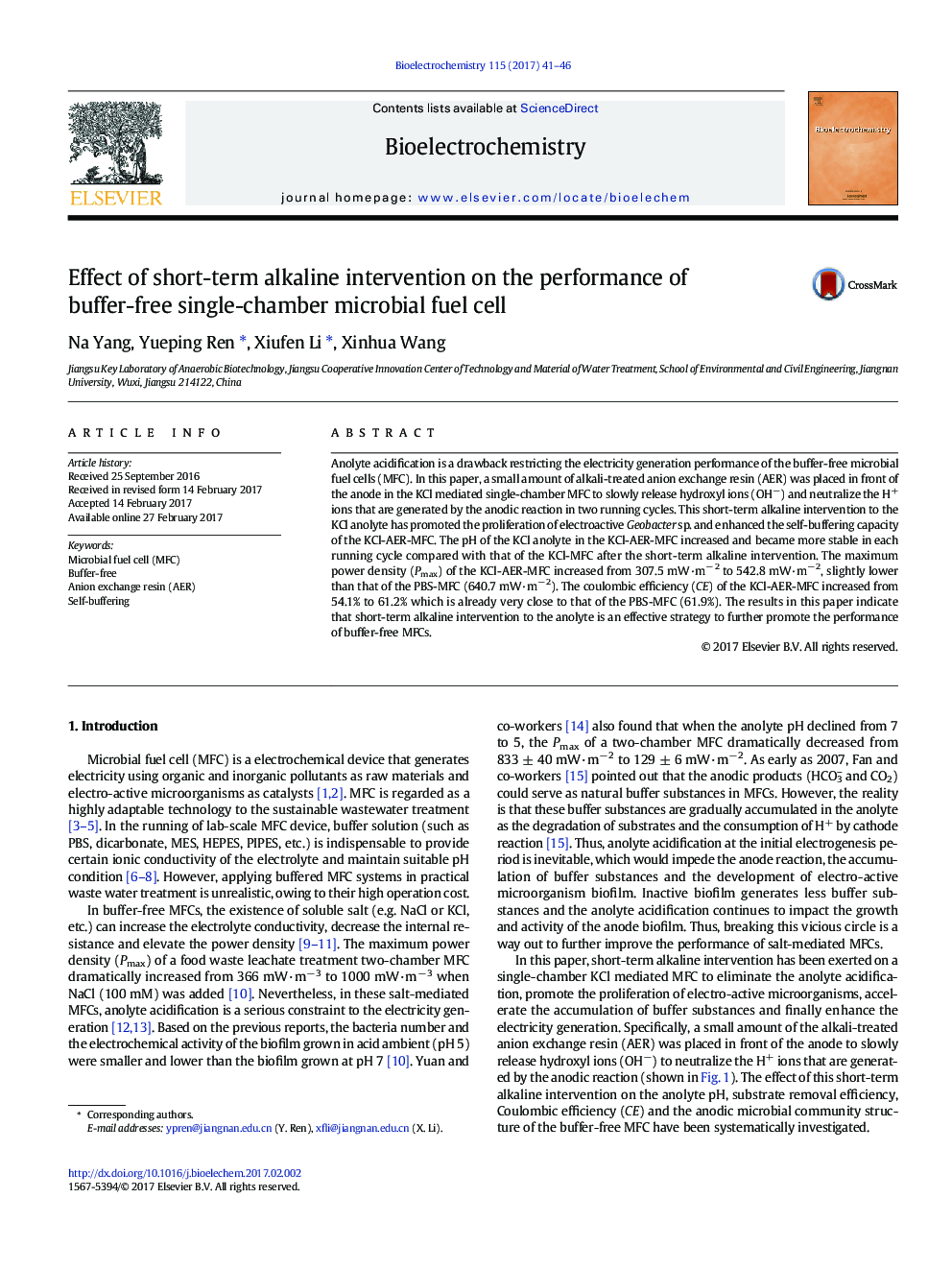| Article ID | Journal | Published Year | Pages | File Type |
|---|---|---|---|---|
| 5145023 | Bioelectrochemistry | 2017 | 6 Pages |
Abstract
Anolyte acidification is a drawback restricting the electricity generation performance of the buffer-free microbial fuel cells (MFC). In this paper, a small amount of alkali-treated anion exchange resin (AER) was placed in front of the anode in the KCl mediated single-chamber MFC to slowly release hydroxyl ions (OHâ) and neutralize the H+ ions that are generated by the anodic reaction in two running cycles. This short-term alkaline intervention to the KCl anolyte has promoted the proliferation of electroactive Geobacter sp. and enhanced the self-buffering capacity of the KCl-AER-MFC. The pH of the KCl anolyte in the KCl-AER-MFC increased and became more stable in each running cycle compared with that of the KCl-MFC after the short-term alkaline intervention. The maximum power density (Pmax) of the KCl-AER-MFC increased from 307.5 mW·mâ 2 to 542.8 mW·mâ 2, slightly lower than that of the PBS-MFC (640.7 mW·mâ 2). The coulombic efficiency (CE) of the KCl-AER-MFC increased from 54.1% to 61.2% which is already very close to that of the PBS-MFC (61.9%). The results in this paper indicate that short-term alkaline intervention to the anolyte is an effective strategy to further promote the performance of buffer-free MFCs.
Keywords
Related Topics
Physical Sciences and Engineering
Chemistry
Electrochemistry
Authors
Na Yang, Yueping Ren, Xiufen Li, Xinhua Wang,
